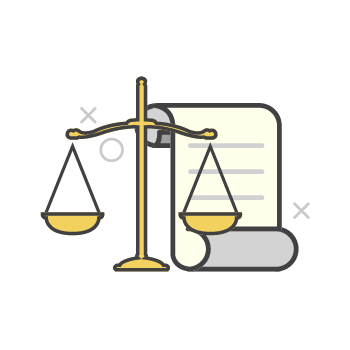How to Identify What’s triggering Your Asthma
by Carolyn Lee Jan 23, 2023

Asthma is a disease of the lung, and attacks can be life-threatening. The American College of Allergy, Asthma, and Immunology (ACAAI) describes the disease as “an inflammation and obstruction of the bronchial tubes – the passages that allow air to enter and leave the lungs.”
Asthmatics may experience coughing (night-time and early mornings), breathlessness, wheezing, and a tightening in the chest. People who have asthma are priority patients in emergency rooms.
What should you know about asthma?
There is no cure for asthma, but there are ways to control it with medication. A mild asthma attack may last a few minutes; however, a severe attack might last for days. Understanding what triggers your asthma can help reduce the instances of an attack.
What are some common asthma triggers?
Several things can trigger an asthma attack. Each person who has asthma has one or more personal triggers. An asthma trigger irritates your airways, setting off your asthma symptoms.
Respiratory infections: Respiratory infections like a cold or flu can cause the airways to become inflamed and produce more mucus. Increased mucus means less room for air to get through and can make breathing difficult. Difficulty breathing and other cold or flu symptoms can cause an asthma attack.
Smoke and pollution: Smoke can irritate the airways, causing them to swell, narrow, and fill with sticky mucus, which might also happen during an asthma flare-up. As such, exposure to smoke or smoking can cause asthma attacks more often. It is wise to avoid tobacco smoke, pollution from exhaust fumes, and outdoor fires.
Mould: Inhaling mould can trigger an asthma attack even if you are not allergic to mould. Damp areas like bathrooms, kitchens, or areas with water damage are some places where indoor mould thrives. Get rid of mould in your home to help control attacks.
Strong odours: Most disinfectants, air fresheners, perfumes, nail polishes, and washing soaps carry strong smells that can trigger an asthma attack. Some chemicals in cleaning products, perfumes and nail polish can cause shortness of breath or wheezing. People with asthma stay away when cleaners or disinfectants are being used and right after use to reduce the risk of an attack.
Sulphite preservatives: Sulphites and preservatives are added to some foods and beverages to preserve shelf-life and colour. Sulphites occur naturally when beer, cider, and winemaking
to prevent them from fermenting further in the bottle. A tight chest,
breathlessness, and wheezing are asthma symptoms that some people might notice
after drinking a small amount of alcohol.
Other things that can trigger asthma attacks include certain spices (cumin, cardamom, cinnamon, etc.), cockroaches (their excrement), allergens (pollen, dust mites, dander, etc.), and medications like aspirin, ibuprofen, naproxen, etc.
What can you do to manage your asthma?
An asthma attack can be terrifying but preventable with proper asthma care. You can use an action plan that helps you to stay on top of symptoms and has the relevant information you need in one place. Your action plan should remind you how to look after your asthma daily and can tell you what to do to prevent your condition from deteriorating.
- Carry your reliever inhaler with you everywhere and follow the prescribed asthma treatment plan recommended by your healthcare provider.
- Check your inhaler technique to ensure that you are using it correctly to prevent side effects from the medicine staying in your mouth.
- Do not overuse your inhaler, as increased usage might lead to your doctor adjusting treatment.
- See your doctor for an annual asthma review to update your action plan and to ensure your inhaler technique is correct. You can also follow up with your doctor to ensure that you have the right medicines and doses to control your symptoms.
- The flu can trigger asthma symptoms that can lead to an attack. So, ask your doctor about the flu shot to reduce instances of influenza.
- Smoking can exacerbate asthma symptoms and trigger attacks. Avoid smoking or being in smoky places that could adversely impact you.
We hope these reminders are helpful. Pay attention to your triggers, work with your doctor, and talk to your loved ones about your illness and how you are managing it. This article is for information purposes only. Please consult your doctor about your condition and follow the action plan to minimise your symptoms.
Sources: Asthma.Org, Mayo Clinic, American College of Allergy, Asthma and Immunology, and CDC.








